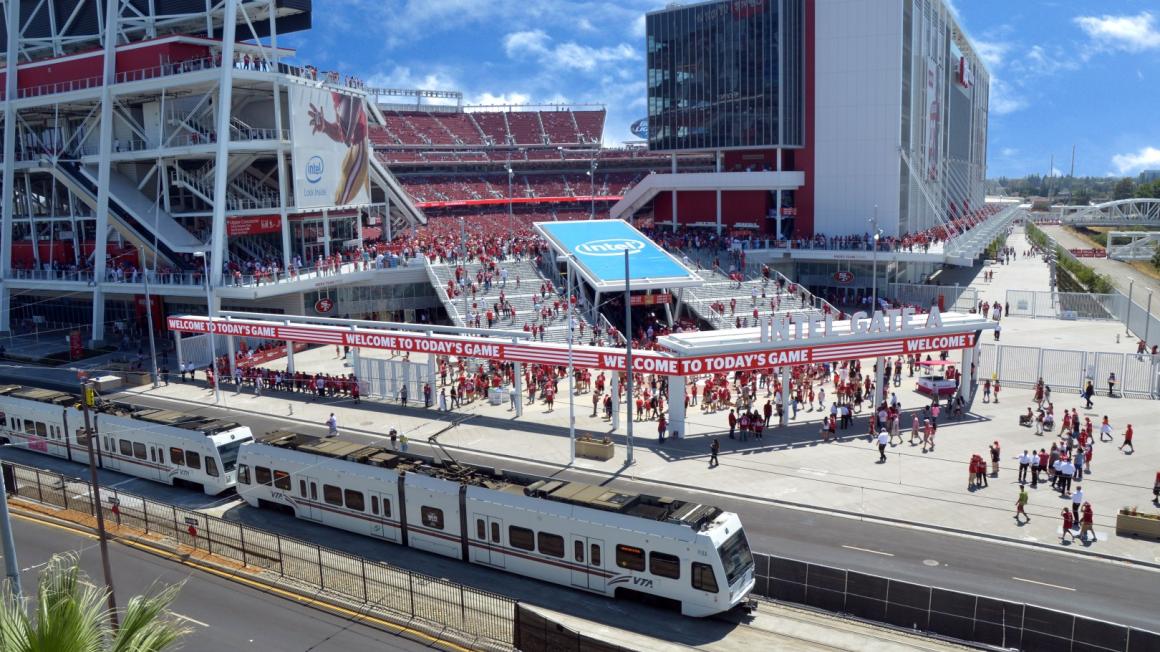There’s nothing worse than buying bags and bags of Halloween candy and then no one comes trick-or-treating at your door. (Hmm, scratch that -- there are definitely worse things.) But anyway. You know your neighborhood leaves something to be desired if you don’t have little ghosts and princesses banging on your door tonight.
What makes for good trick-or-treating? Wide sidewalks for a whole ghoulish posse of little ones, with streetlights illuminating their path, not just the roadway. Houses that are close to each other and to the street so little feet don’t have to walk too far to fill their plastic jack-o-lanterns full of candy. Slow-moving cars, or better yet, a street closed to cars for special events like Halloween -- and neighbors that know each other well enough to organize something like that.
Trick-or-treating is an activity centered on kids, so it puts their needs into sharp relief. They’re not looking for neighborhood streets that prioritize vehicle throughput. They don’t drive. They just want to walk, safely, to a lot of houses in a short amount of time, in a vibrant neighborhood that feels fun and friendly. Leigh Gallagher, author of "The End of the Suburbs," says close-built houses are "a proxy for community" -- and that's what makes Halloween such a good litmus test for a neighborhood's health.
Zillow's attempt to quantify what makes a great trick-or-treat neighborhood kind of missed the mark. They ranked the 20 best cities for candy-gathering (San Francisco, Boston, Honolulu, San Jose…) -- and the top neighborhoods within those cities -- on the basis of their walk score, crime rates, population density -- and median home values. I will refrain from ranting too much about how incredibly messed up it is to include home values in that calculation -- IT IS INCREDIBLY MESSED UP -- and just say that the other three measures are a sensible place to start. It indicates that smart growth and strategic candy-grubbing go hand-in-hand.
The Houston Chronicle hit the nail on the head with its “trick-or-treat test”:
Can kids find a well-lit front door, or is it hidden behind a garage? Can homeowners see the street from their windows, or do treaters (and less cute tricksters) walk the neighborhood unwatched? Is there an uninterrupted sidewalk, or do pint-sized ghouls have to traipse through a lawn? Do tree-lined streets slow down traffic, or do speedsters rule the night?
The number of kids walking the streets on Halloween, and their candy haul, can be a great indicator of a neighborhood's quality design.
Neighborhoods that fail that test have resorted to making Halloween car-centric. “Trunk-or-treating” is a new, rather disturbing, trend in some suburbs. I thought suburbs were supposed to be safe and kid-friendly, but this is a mess.
Parents are holding Halloween tailgating parties in church parking lots, handing out candy from their minivans. No walking off that candy overload, no adventurous neighborhood exploring. Just a safe, controlled environment -- as long as everyone is very careful pulling in and out of that kid-filled parking lot in the dark.
Some business associations get together for trick-or-treating too -- but give me a candy-filled stroll down some fun commercial corridor over Mall-o-ween any day.
So Happy Halloween, witches and warlocks. Enjoy your doggy costume contests, your car-free block parties, your pumpkin-spiced cocktails at your local bar, your costume craft workshops, and your special events at the children’s museums and zoos in your city. Or just enjoy the one special night a year when kids get to stay out late, walk instead of ride in the car seat, enjoy the generosity of their neighbors, and gorge on candy. Boo!






